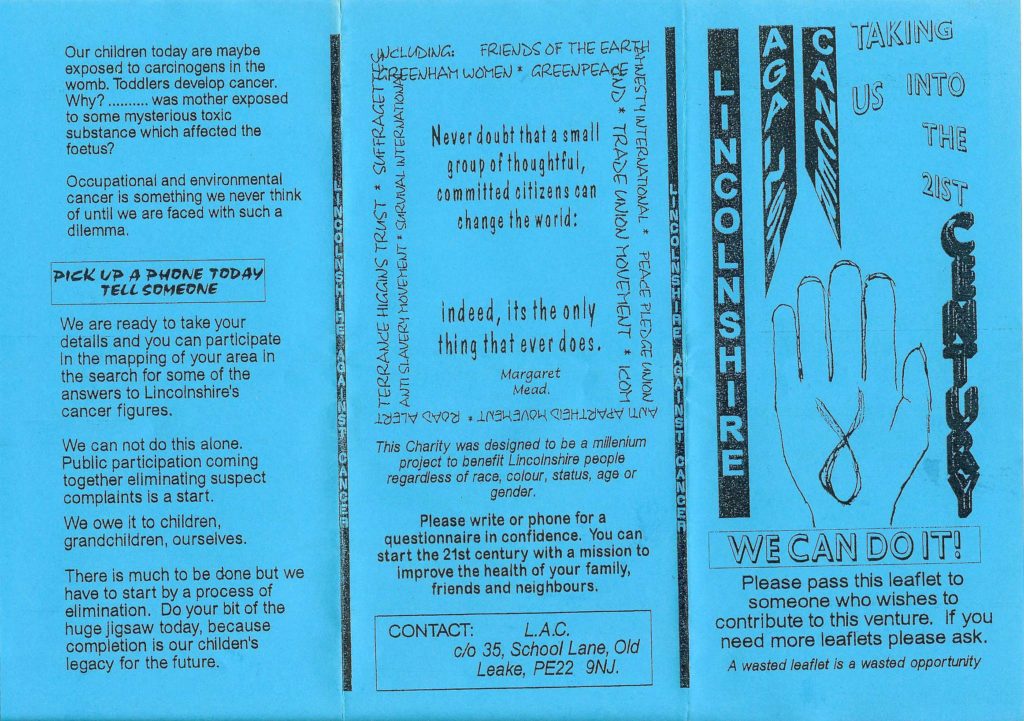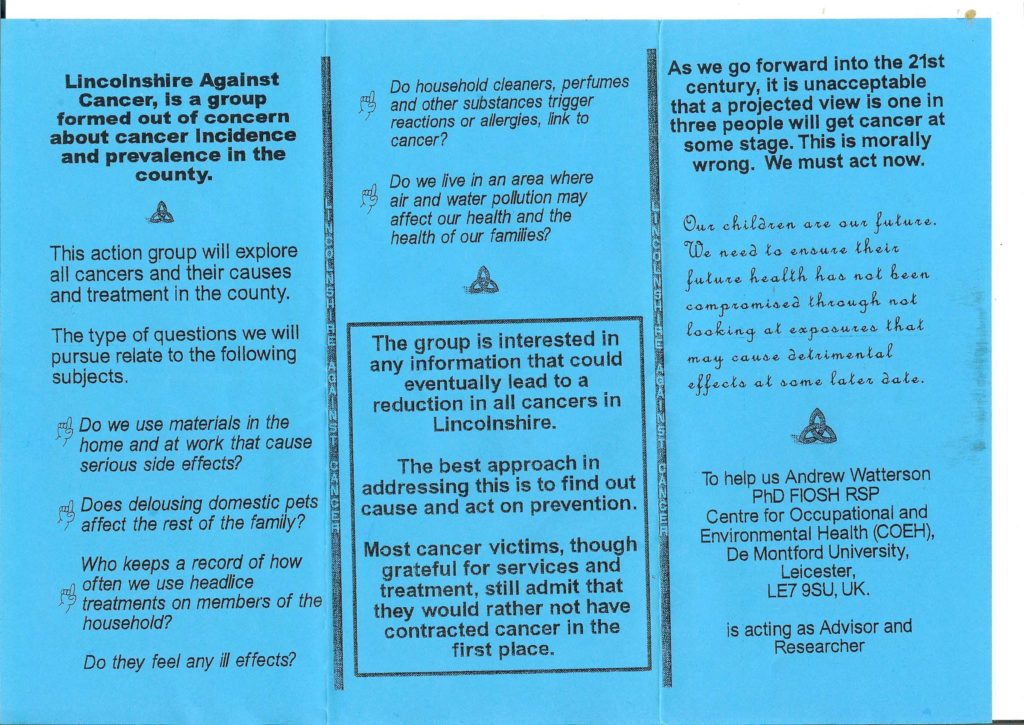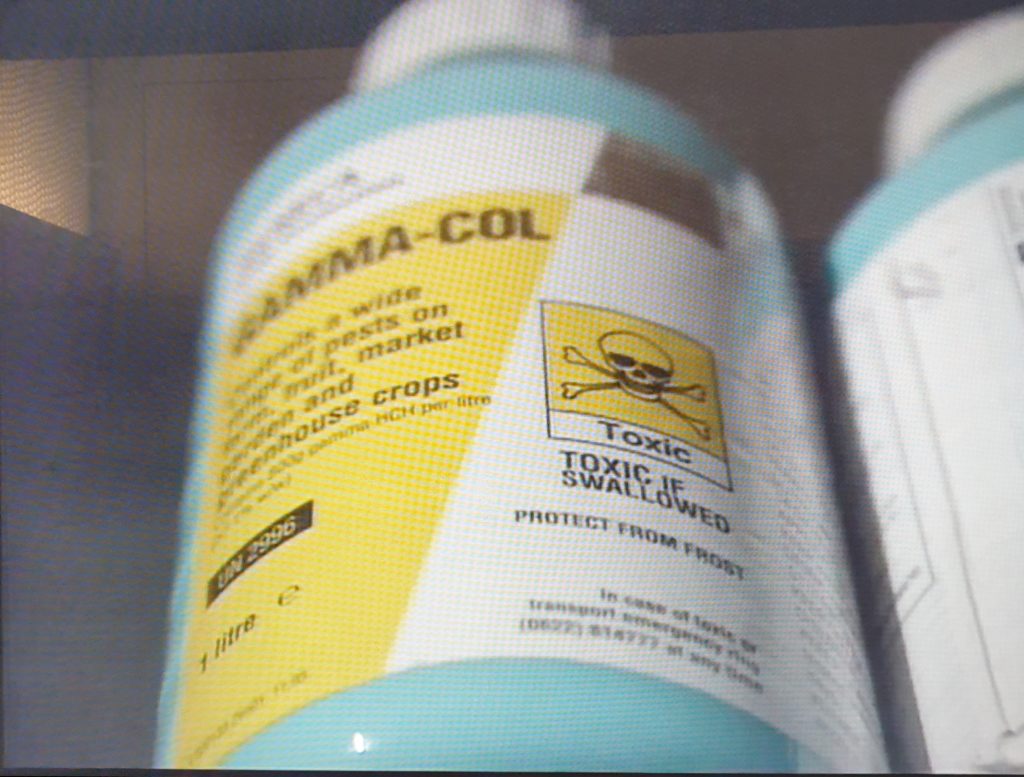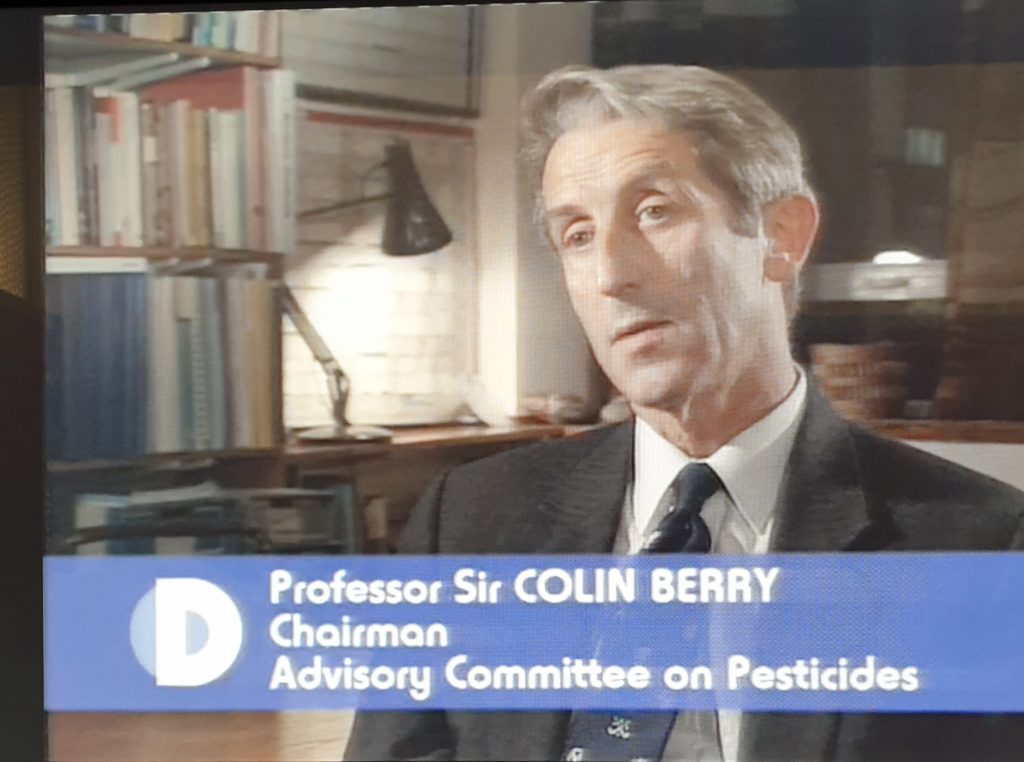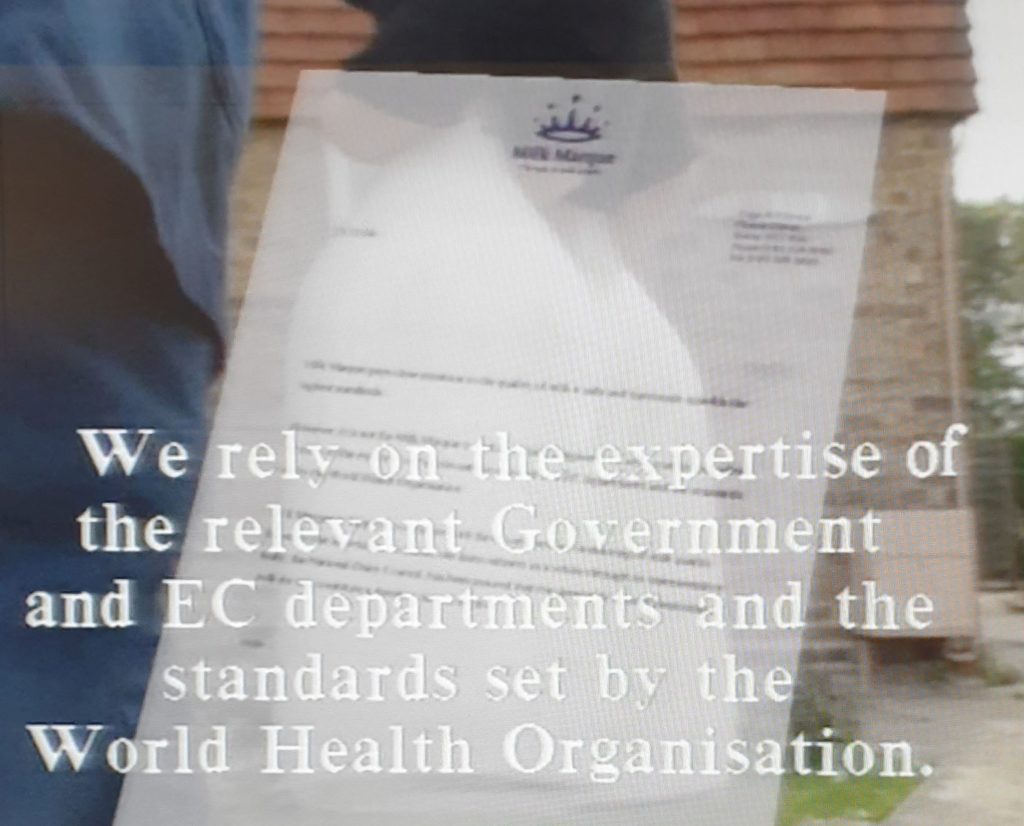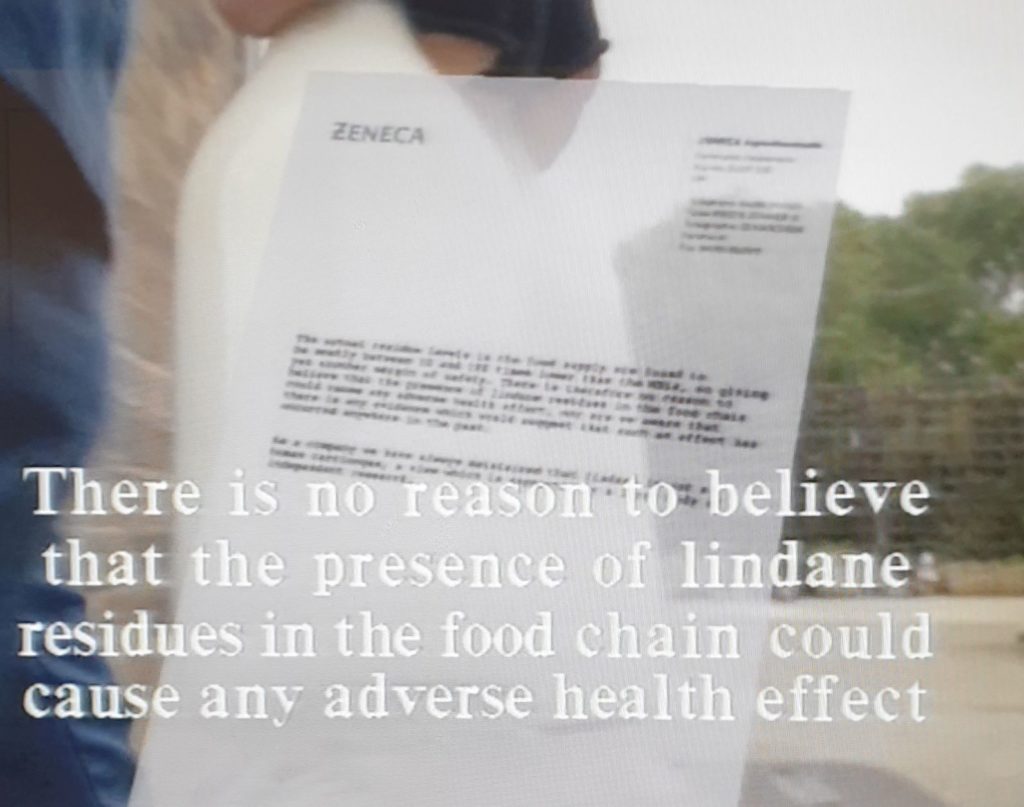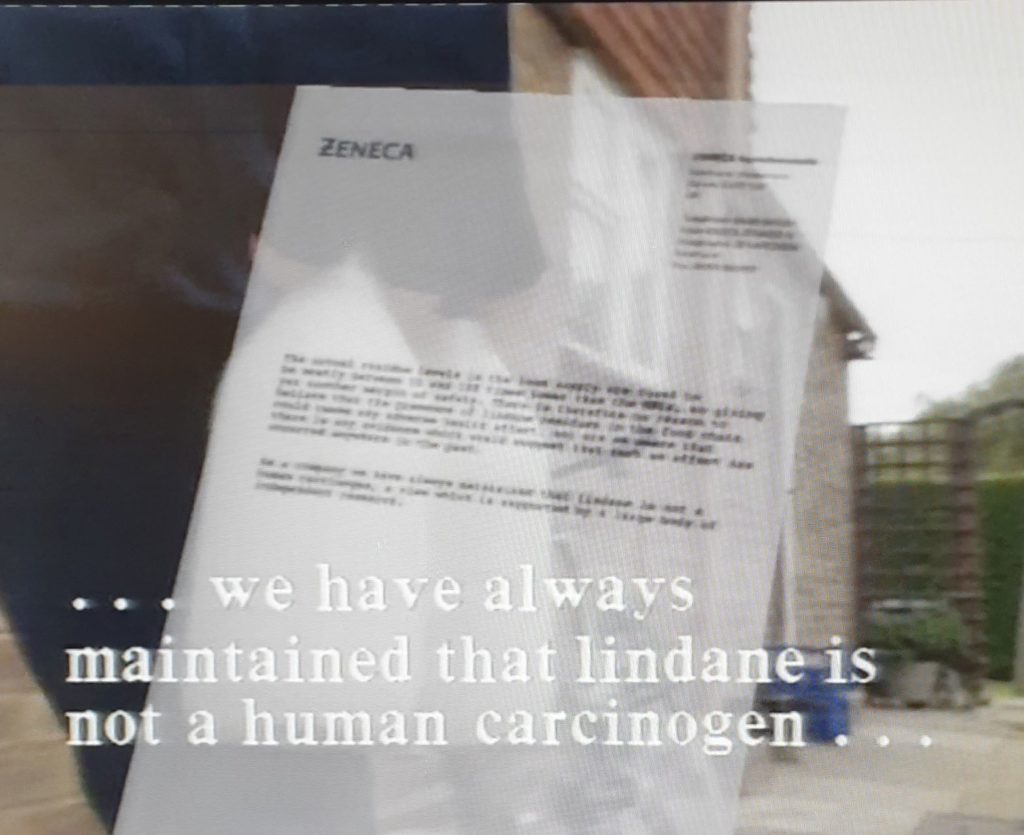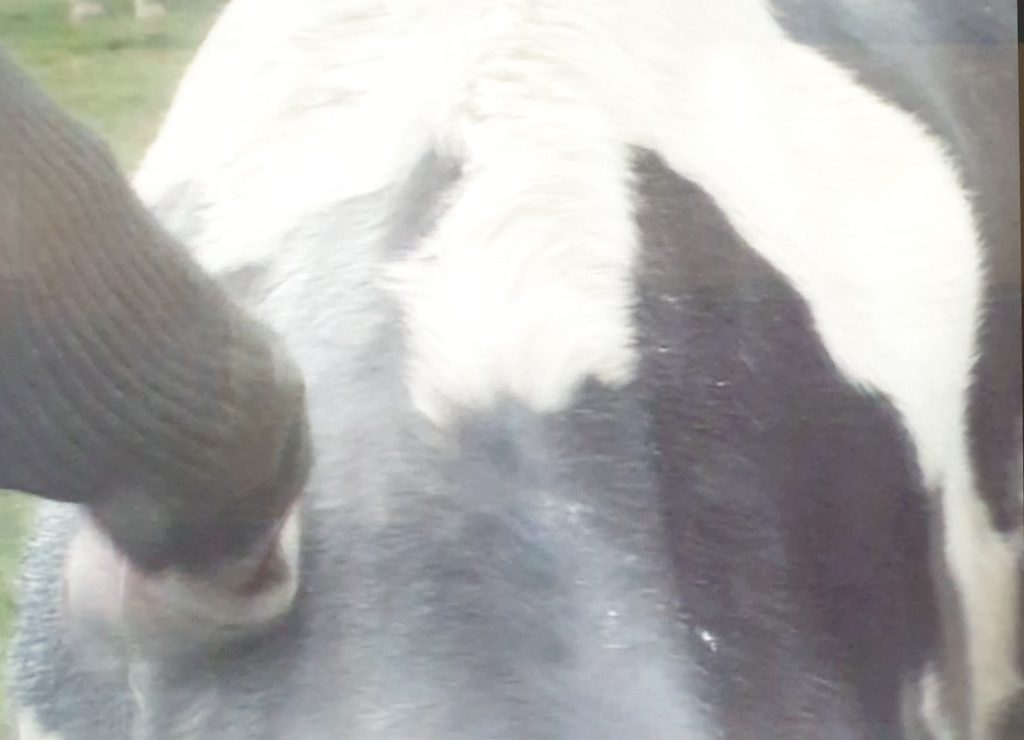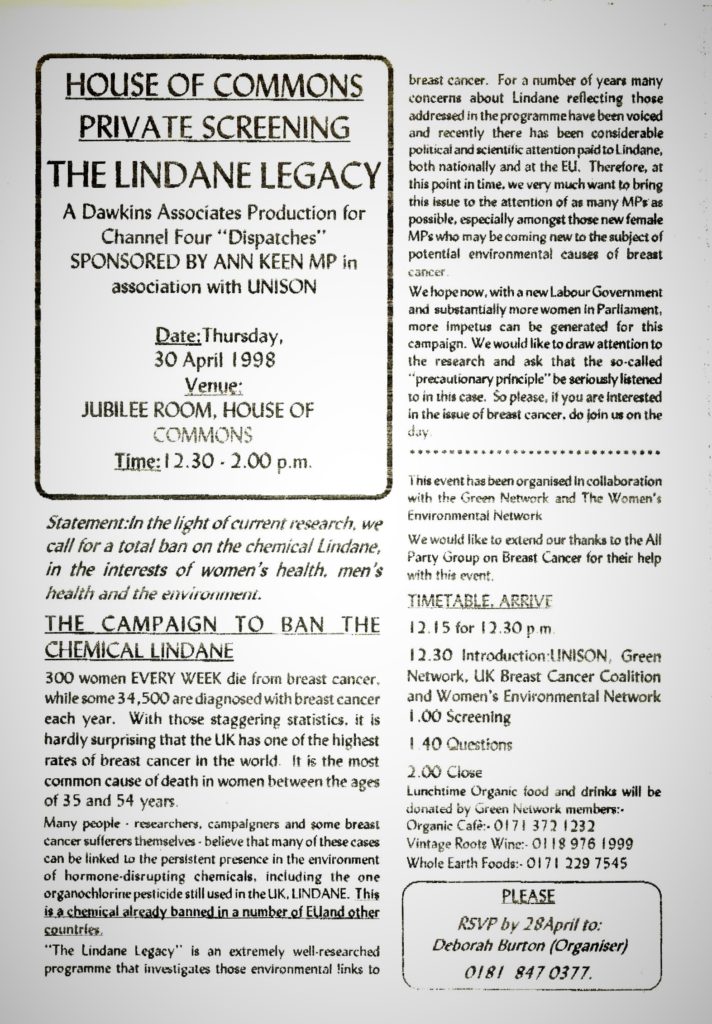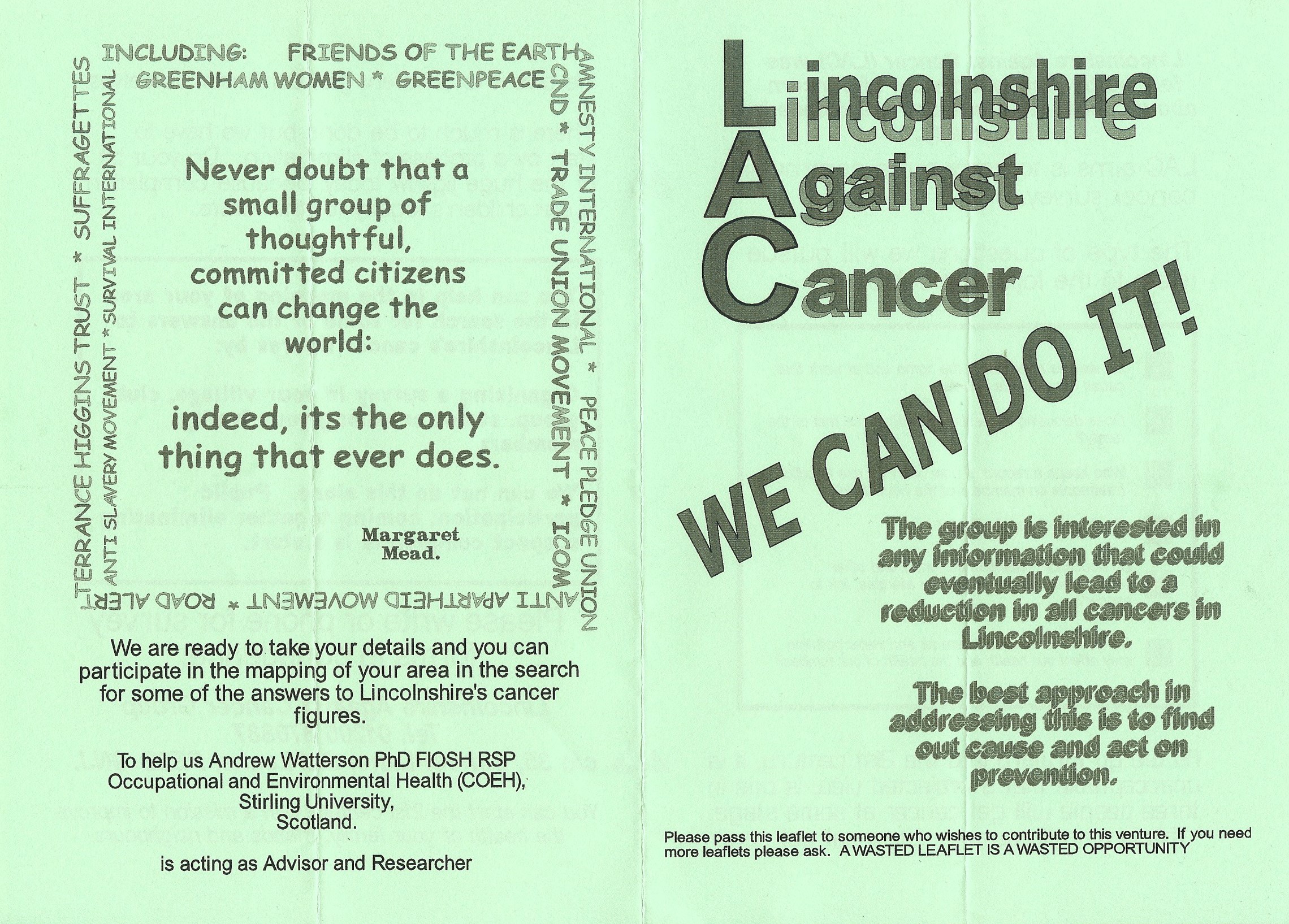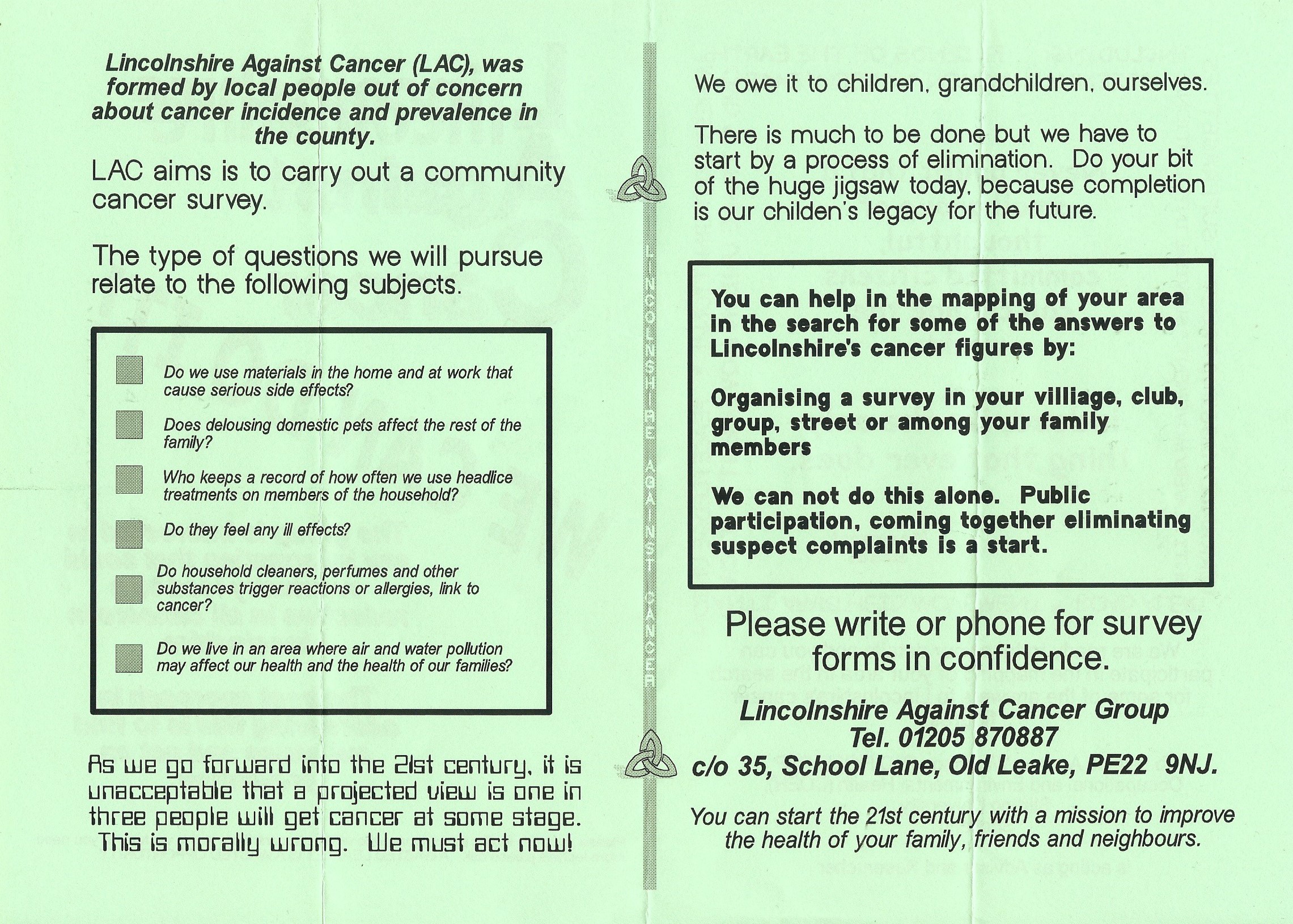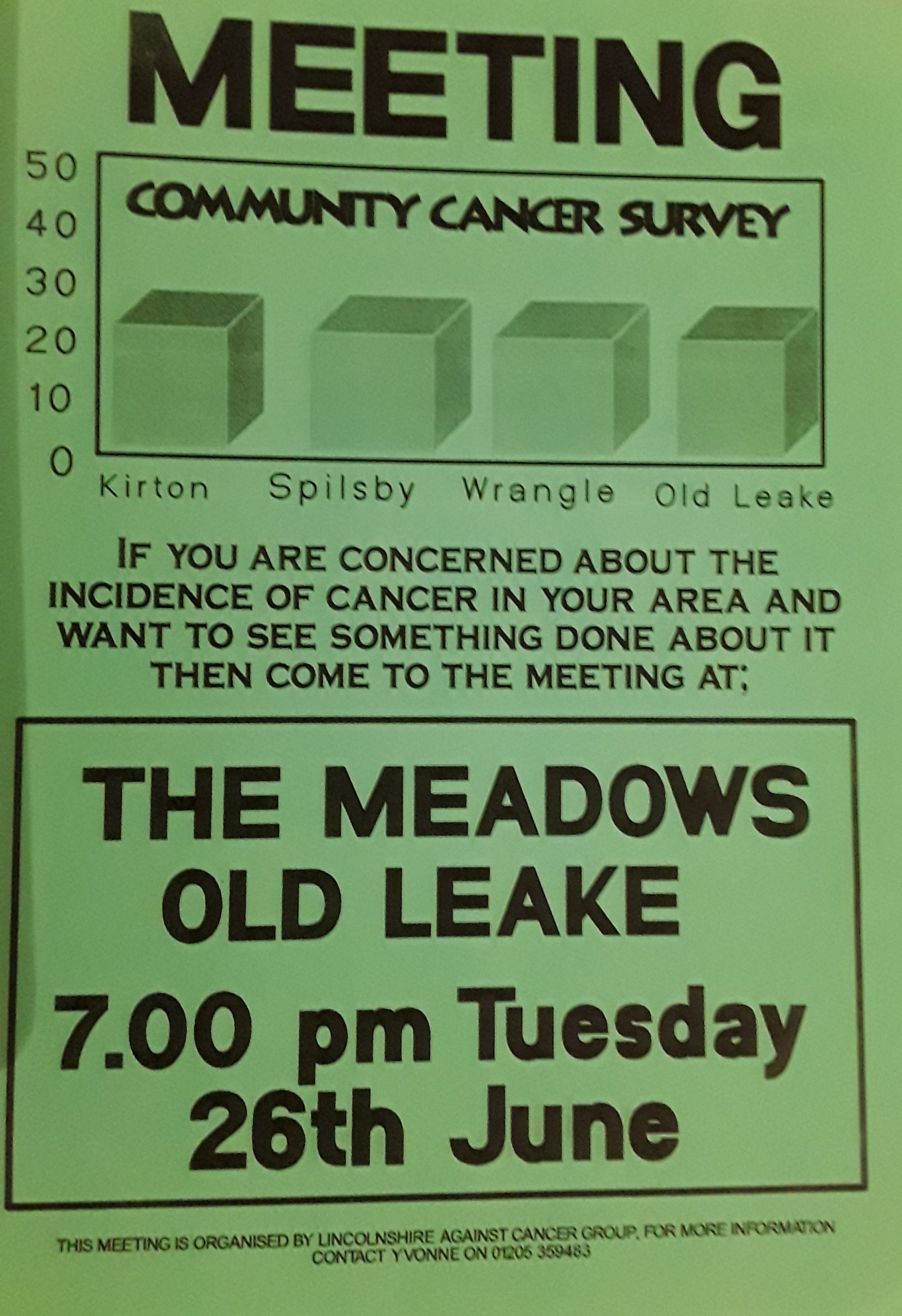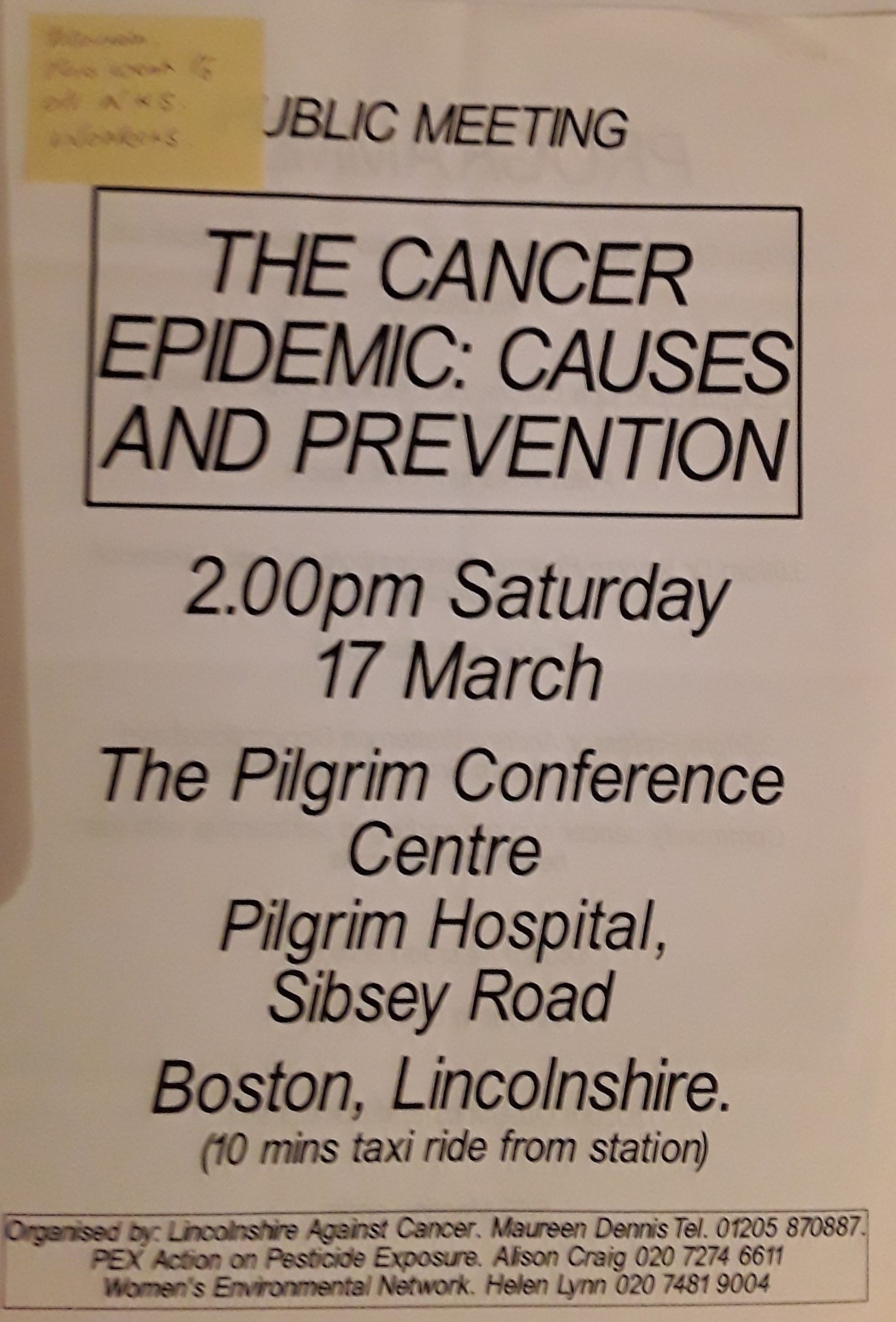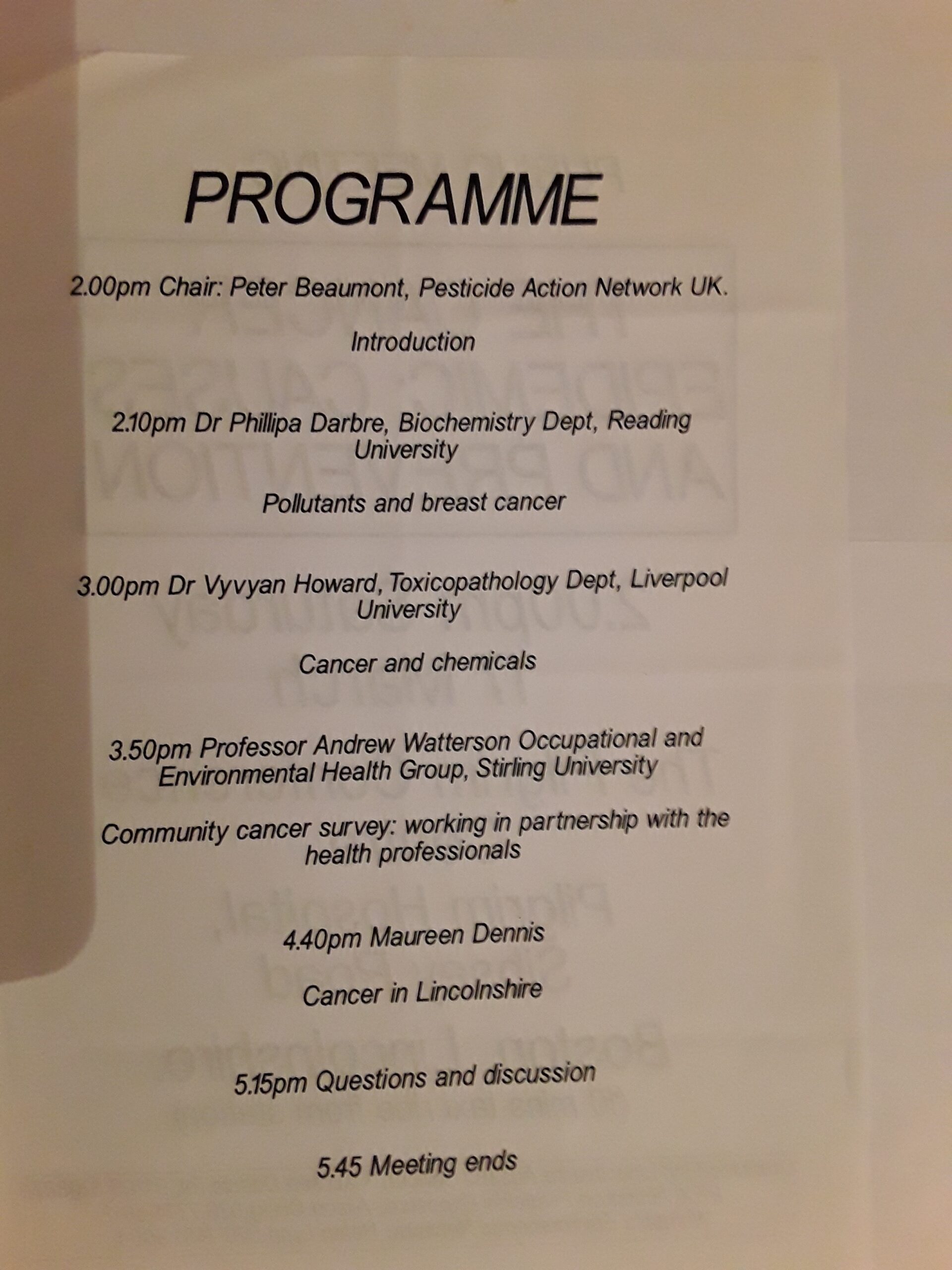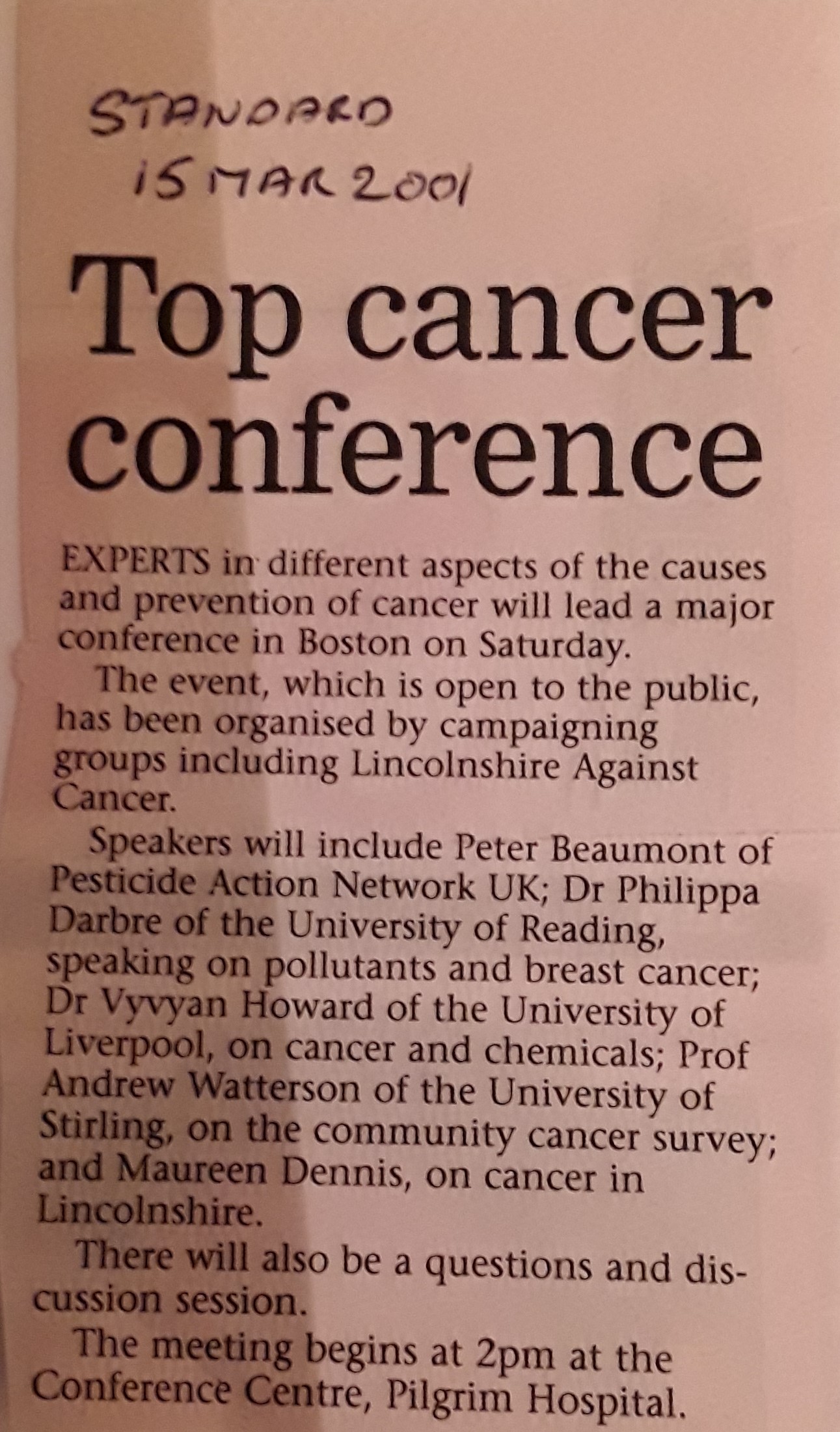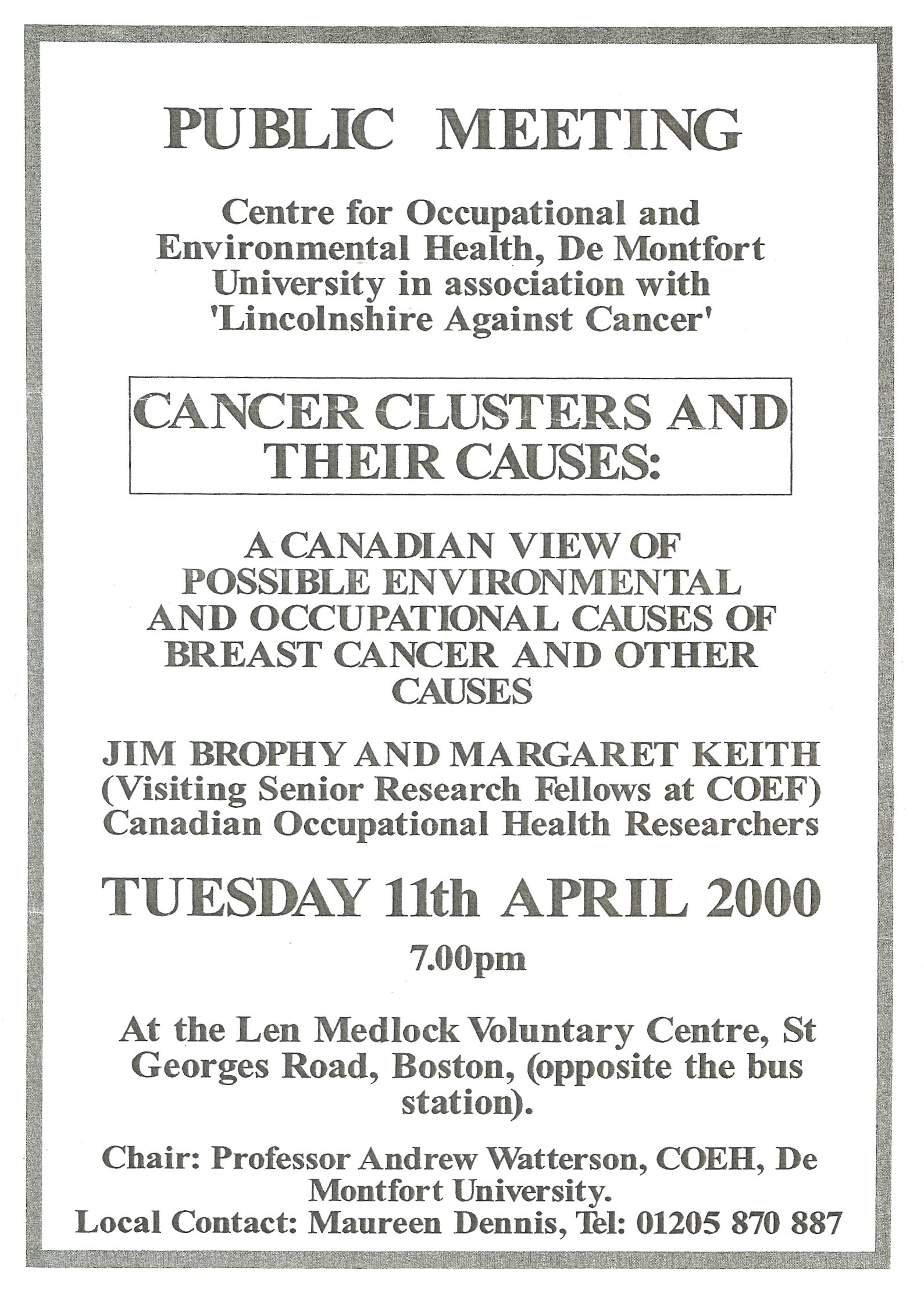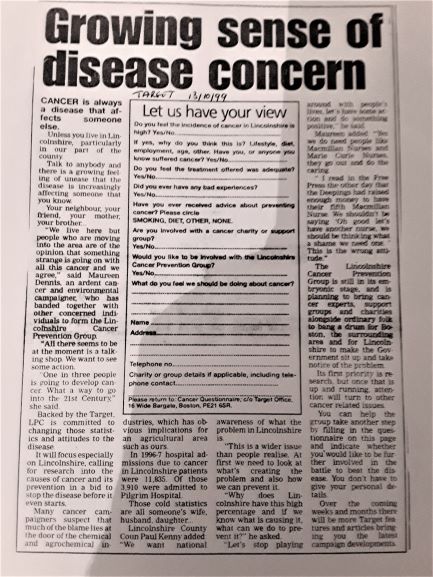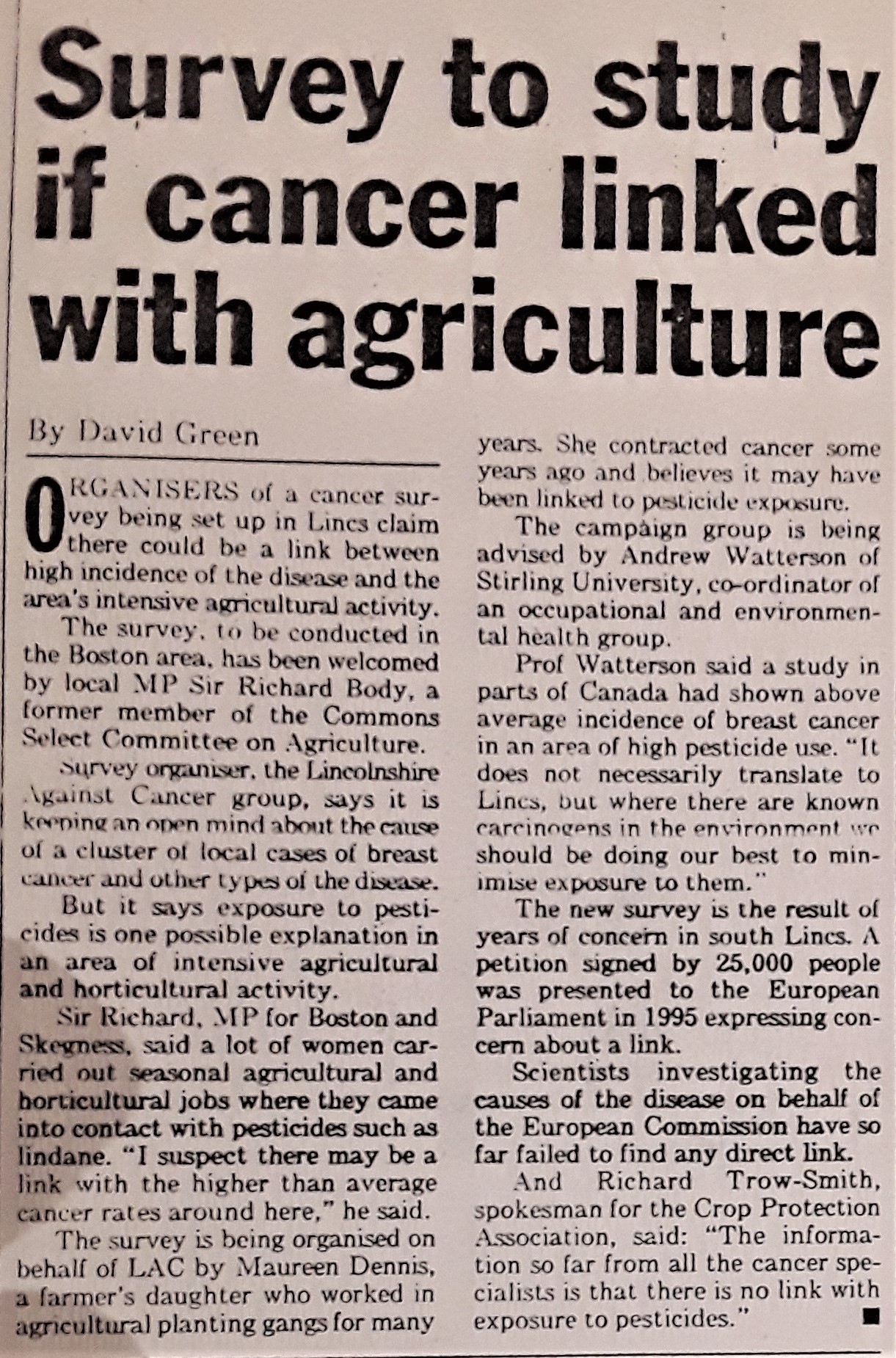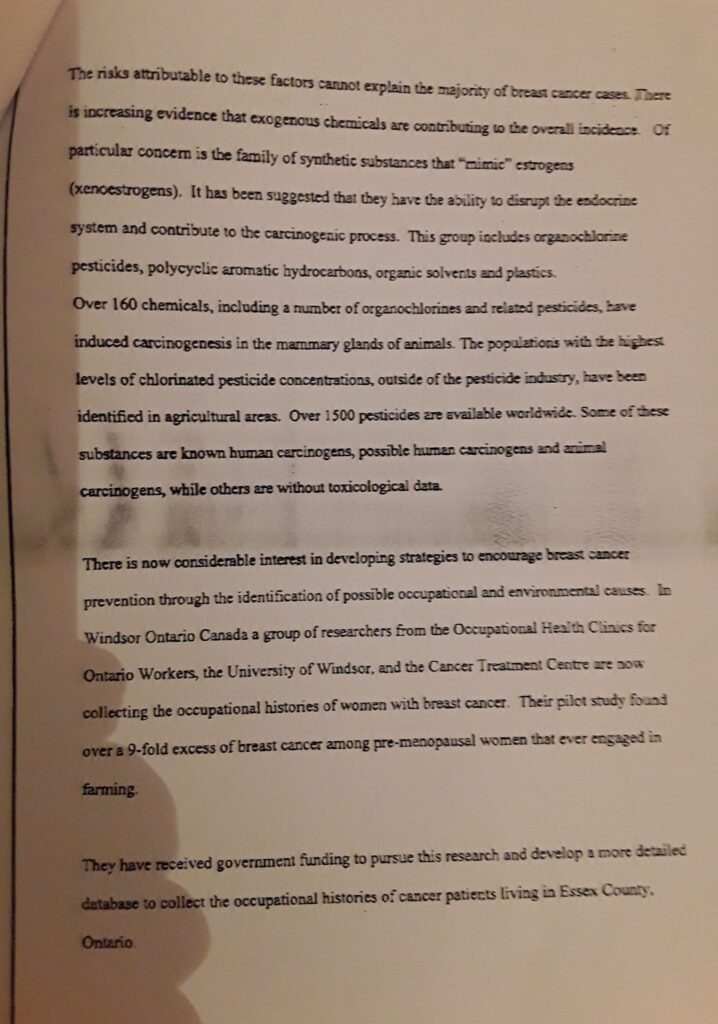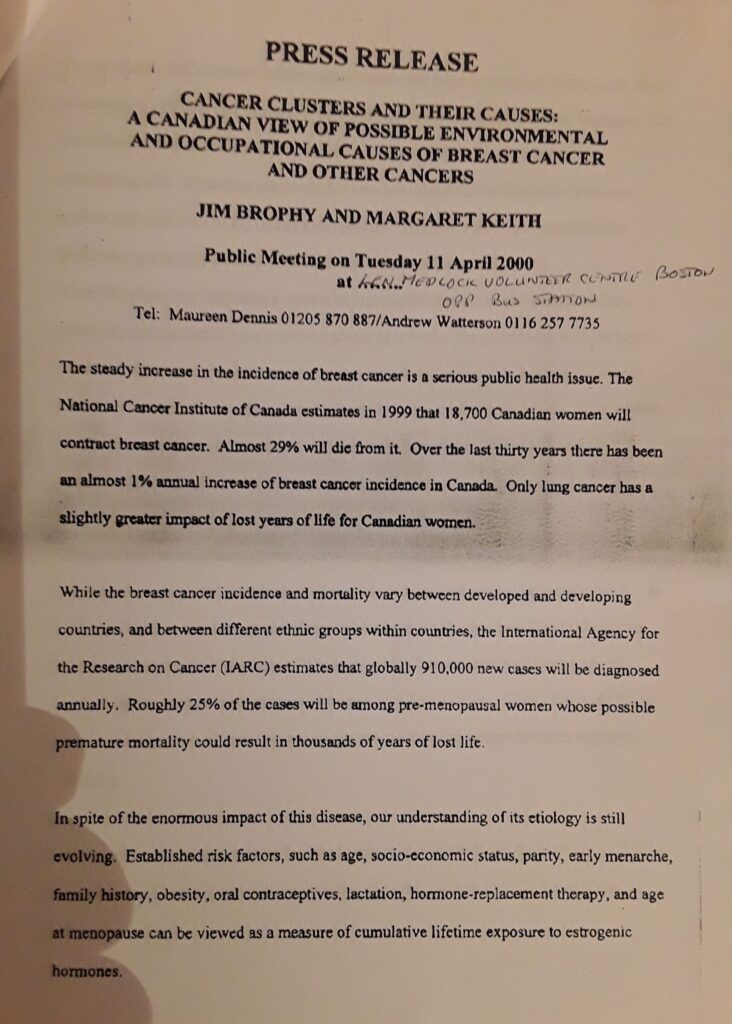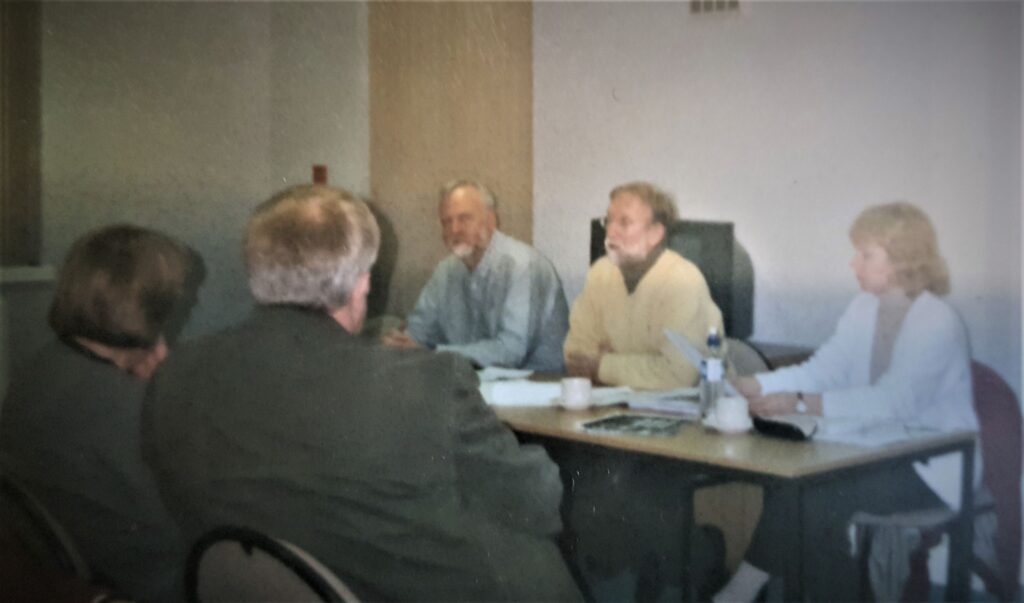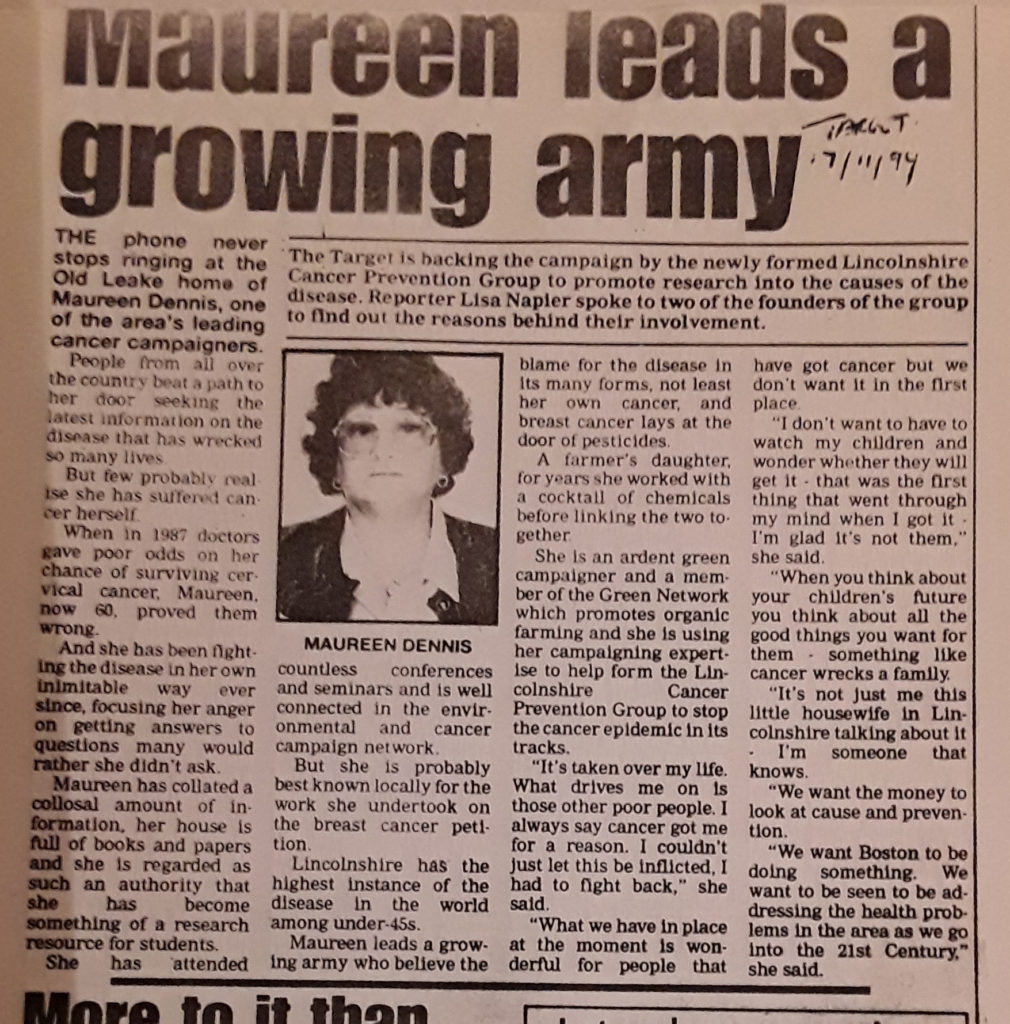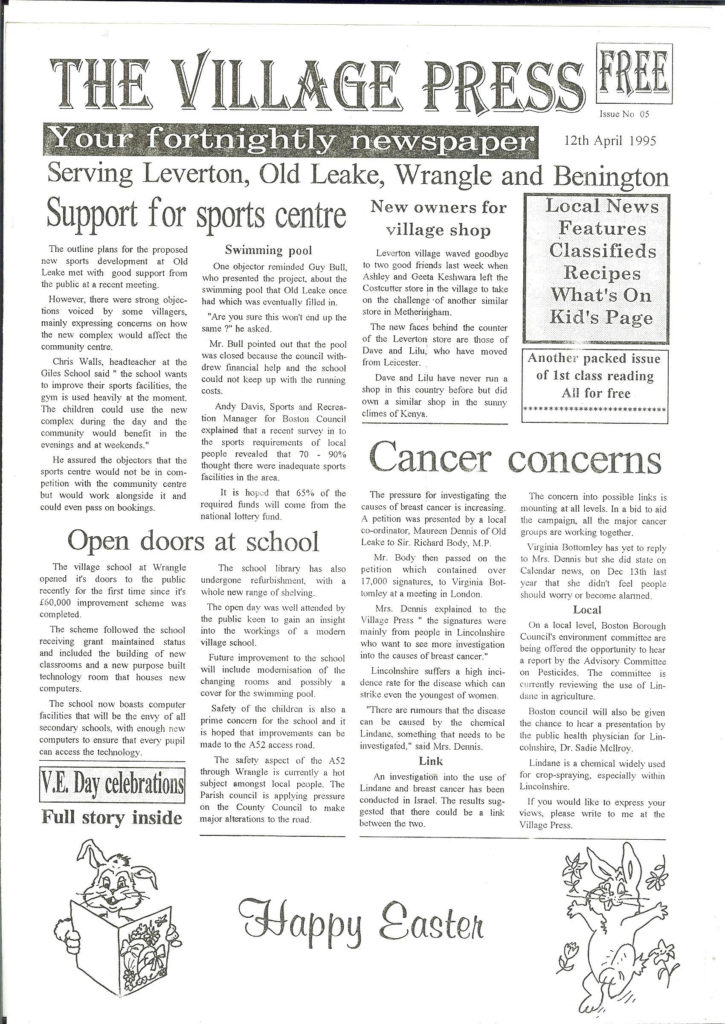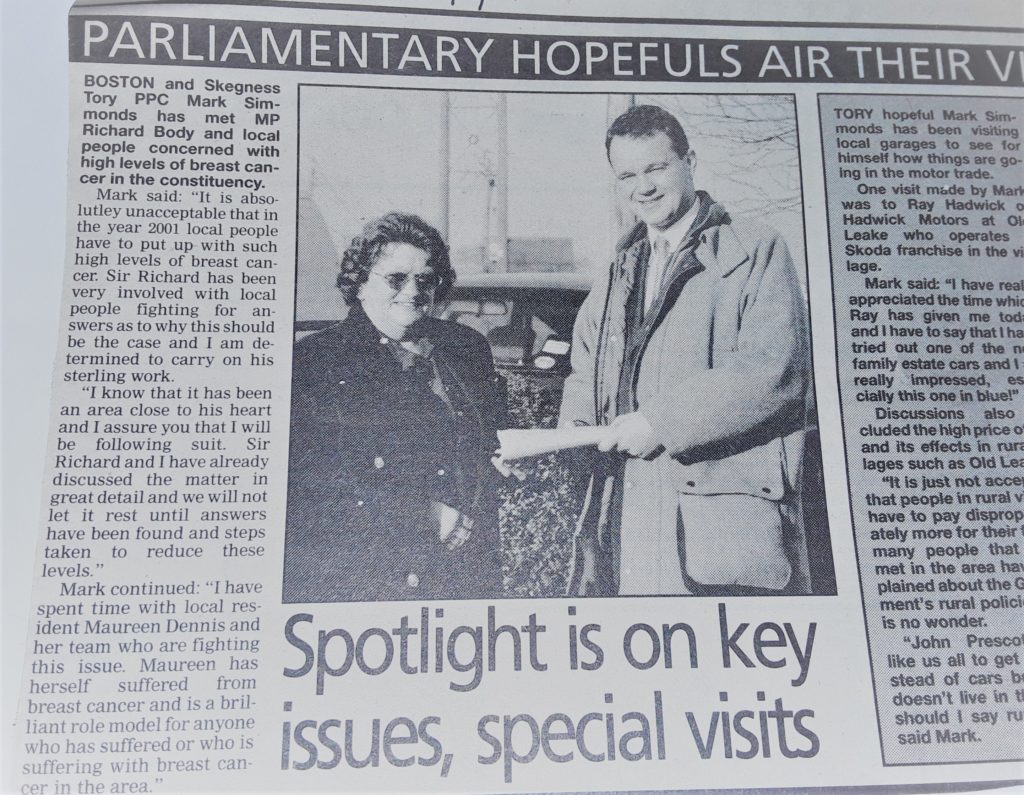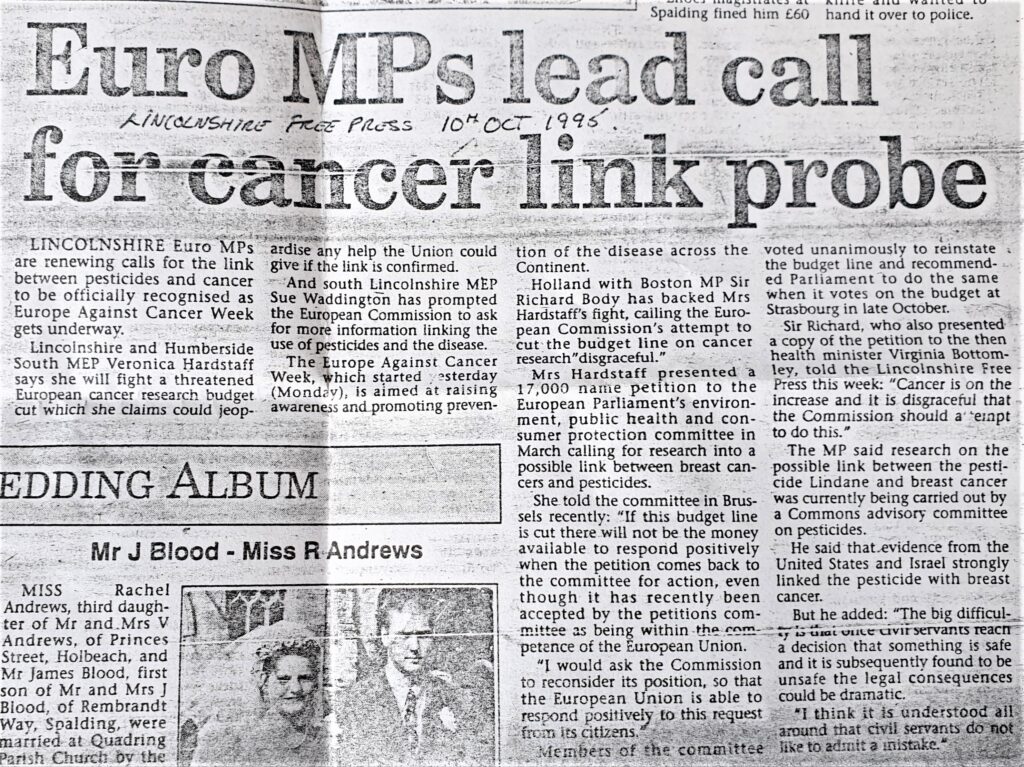Lincolnshire Against Cancer (LAC) began campaigning in 1994 with the continued support of their local MP Sir Richard Body and spearheaded by the tireless and knowledgeable campaigner Maureen Dennis. LAC quickly began a letter writing campaign to their local paper, gathering support and following up any reports of pesticide contamination and pollution.
In 1995 LAC joined with GreenNetwork to simultaneously submit a petition to the UK Government and the European Parliament on the 22nd of March 1995. The campaigns strove to draw attention to the high cancer rates in the county drawing on their personal experience of cancer and working in the fields and greenhouses of Lincolnshire. The petition called on the Secretary of State for Health to call on the government to fund independent research into the cause and prevention of breast cancer and the links with synthetic, carcinogenic and other industrial chemicals.
The 25,000 signatures called for an inquiry into the relationship between the use of pesticides and frequency of breast cancer in Lincolnshire and called for research into the causes of breast cancer and not just further treatments.
Although the ultimate response from the European Commission was that: ‘at present there is no indication for a causal statistical correlation between pesticides and breast cancer.”
Further dialogue with MEPs proved more fruitful. The chairman of the Committee on Petitions in the European Parliament declared the issues raised in the petition as admissible in accordance with the treaty of European union. It was discussed in the public health and women’s rights committees.
Due to its success in Lincolnshire, a nationwide petition was launched in the autumn of 1995 at the launch of the UK Breast Cancer Coalition in Westminster. It called on the HM government to fund independent research into the cause and prevention of the disease, and the links with carcinogenic synthetic and other industrial chemicals.
In 1994 Channel 4 investigatory documentary series, Dispatches, produced a program on Lindane. Entitled The Lindane Legacy, it made a lasting impact on many that saw it, and ultimately contributed to a ban on Lindane. The program highlighted the links between the use of lindane in Lincolnshire and local high rates of breast cancer, up to 40% higher rates in South Lincolnshire than in the rest of the country. The program looked particularly at the high levels of lindane found in dairy products. The Program was later shown in the House of Commons in 1998 to draw attention to the high rates of cancer in Lincolnshire.
Maureen Dennis on behalf of LAC, spoke and participated in many conferences and meetings over the decades LAC was active. The issue was kept alive and in the public’s attention locally by LAC organising several public meetings and conferences, bringing speakers from Canada and beyond to generate public support and media interest. This ultimately led to a community cancer survey in 1999 in conjunction with Stirling University.
Their public meeting in 2000 with Canadian researchers Jim Brophy and Margaret Keith considered cancer clusters and their causes, and how the researchers had found a 9-fold increase in breast cancer among pre-menopausal women who had every worked in agriculture.
The following year LAC joined forces with the Women’s Environmental Network (WEN) and the Pesticide Exposure Group of Sufferers (PEX) to organise another public meeting on the Cancer Epidemic: Causes and Prevention with speakers from PAN UK and scientists Prof. Andrew Watterson, Dr. Philippa Darbre, and Dr. Vyvyan Howard .
